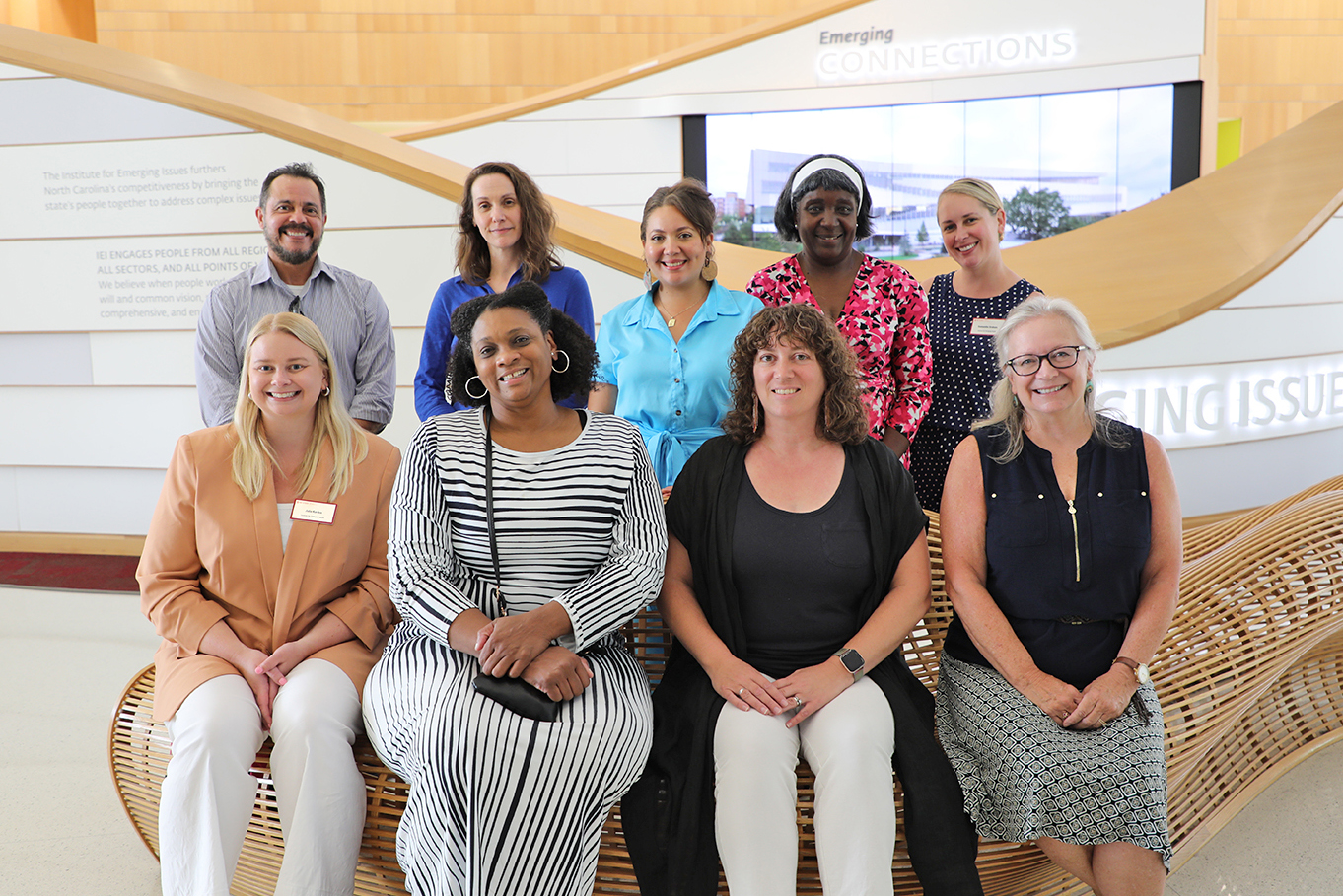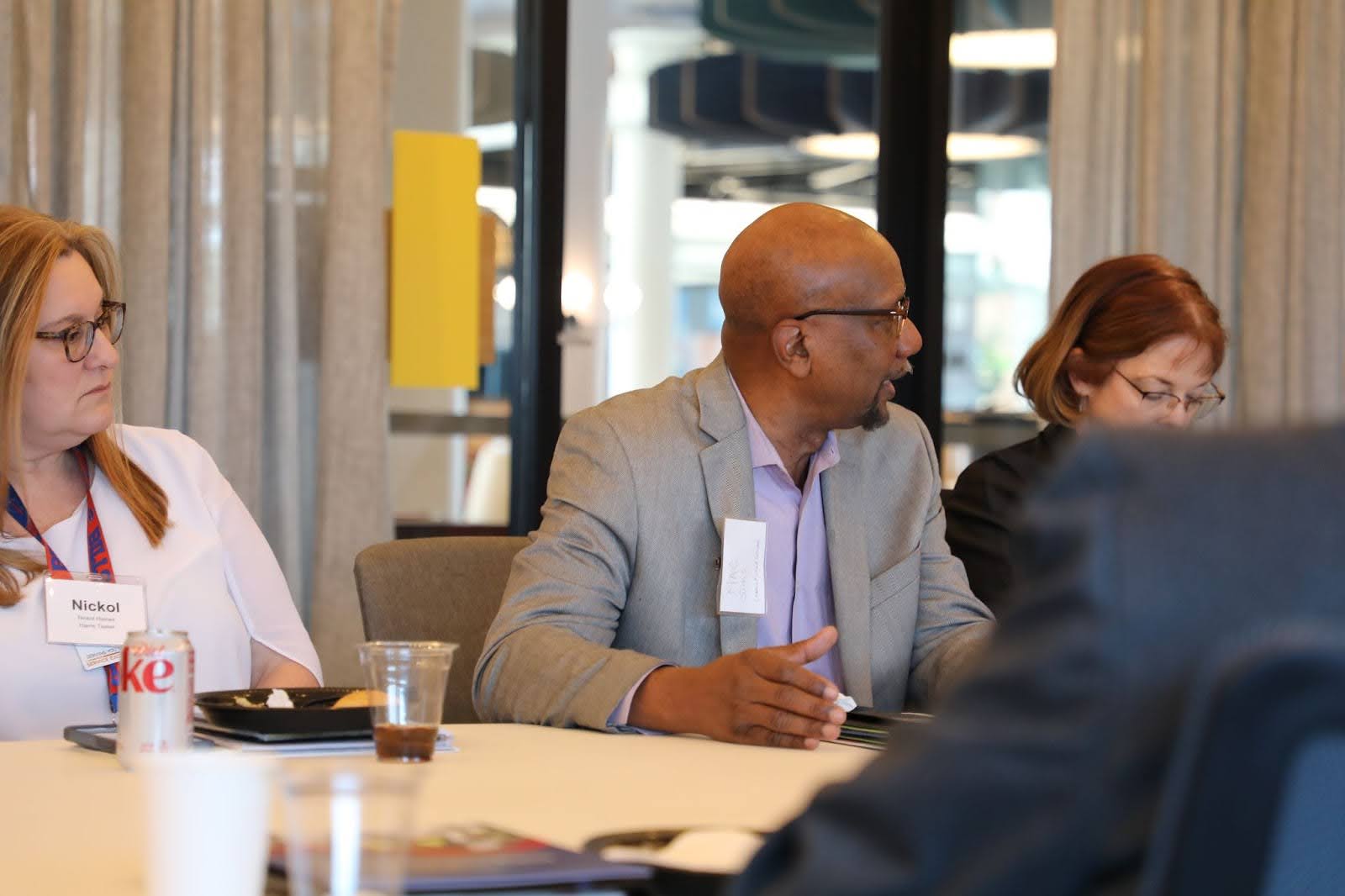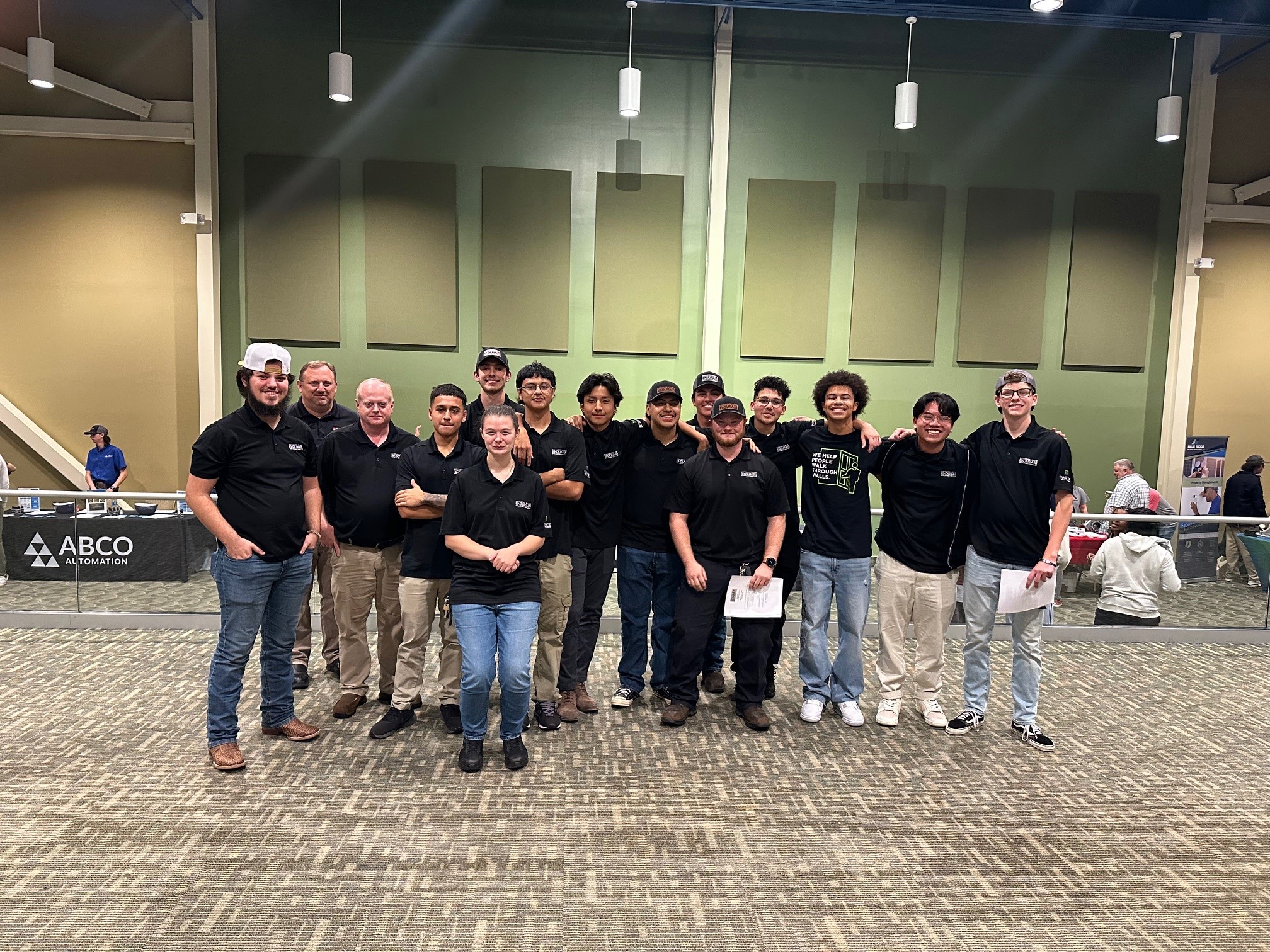Cape Fear Community Cohort Team Brings Regional Leaders Together to Support Opportunity Youth
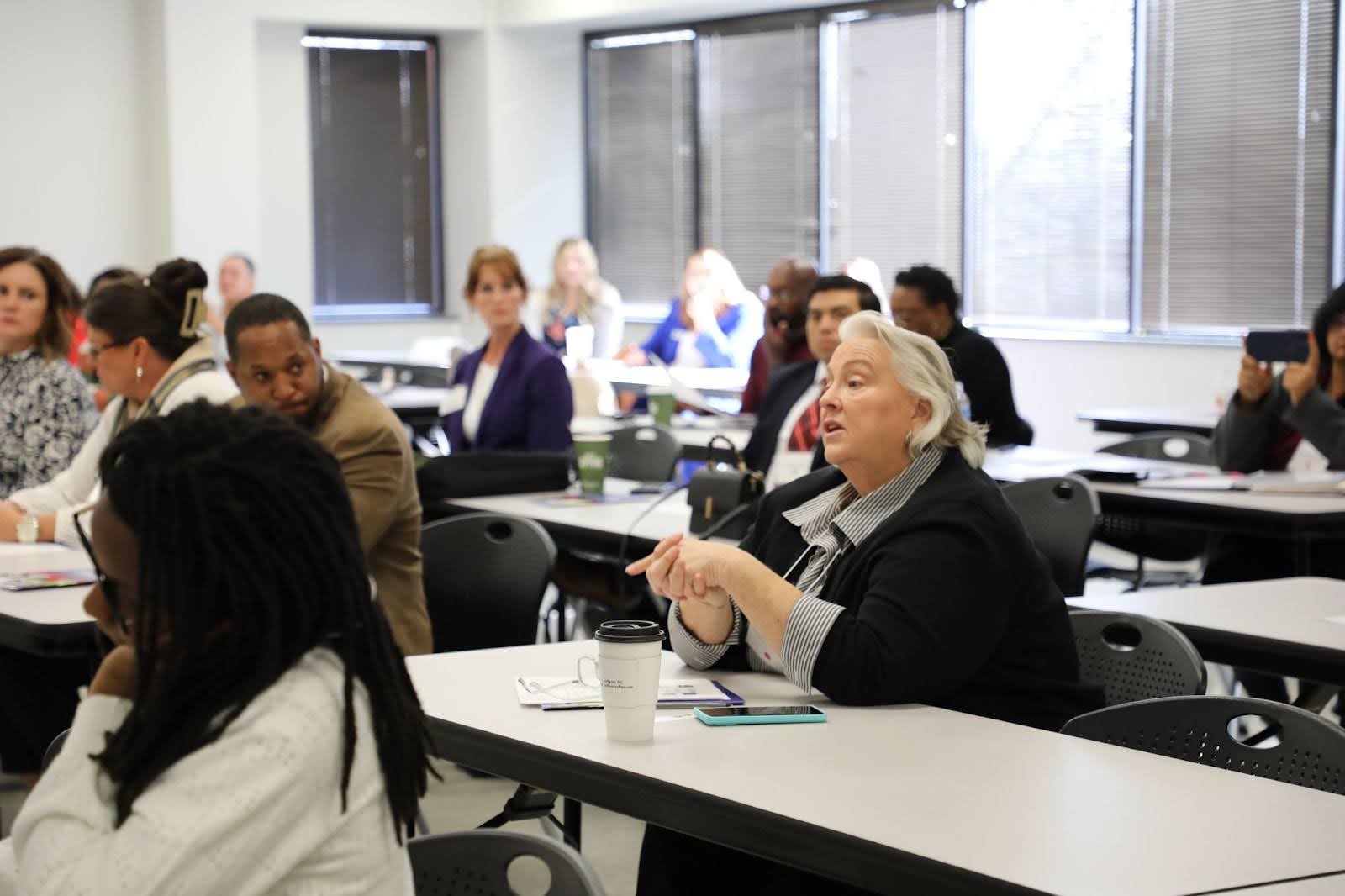
On December 13, 2023, youth program leaders and industry professionals from Brunswick, Columbus, New Hanover and Pender counties gathered at Brunswick Community College in Leland for the Four-County Regional Conversation on Opportunity Youth – a meeting of leaders with the shared goal of better connecting young adults to employment and upward economic mobility. The event was organized by the Talent First Economics Community Cohort Cape Fear Region team, a group of certified workforce development leaders helping to increase employment opportunities for underrepresented workers in the region.
Identified as one of five underutilized workforce groups in North Carolina, opportunity youth are defined as teens and young adults ages 16-24 who are neither in school nor employed. This meeting addressed the various employment challenges opportunity youth face, and fostered dialogue on needed solutions.
Kathy Robson, Coordinator for the Early Parenthood Program at the YWCA of Lower Cape Fear, said that she wanted to attend this event in order to learn how other counties are utilizing resources and services to support area teens.
“I can only really speak to Columbus County, but there is just a lack of resources for teens there,” said Robson. “I want to find out what is happening in other counties in this area and how we can maybe work together to fill in some of those gaps for teens in our community.”
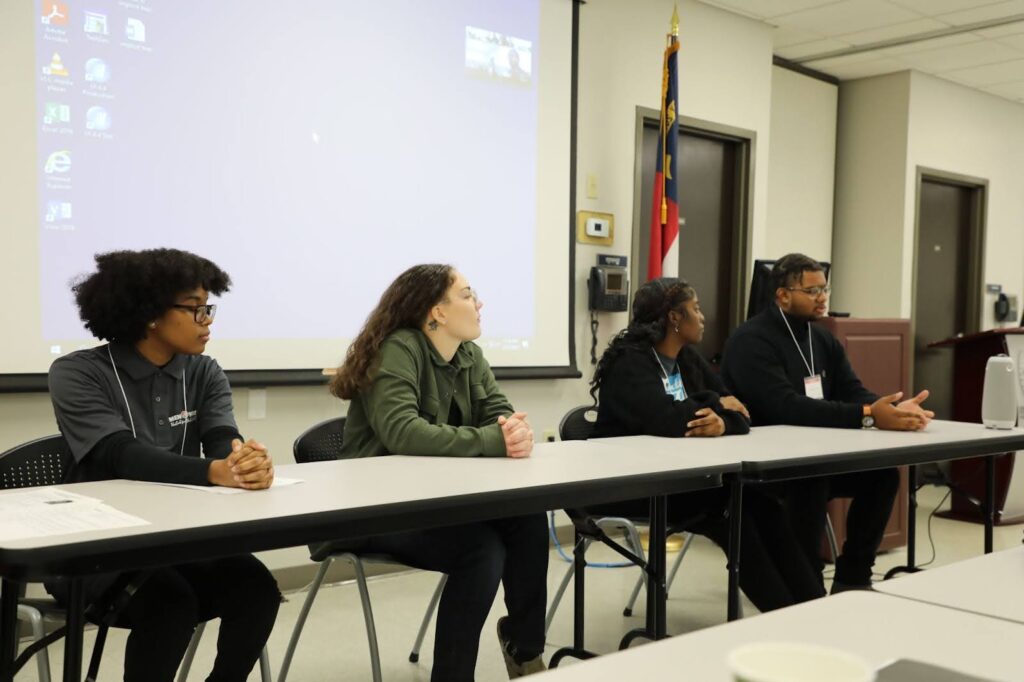
From Their Perspective
While attendees traded ideas about how to best reconnect and engage opportunity youth, they also heard from a panel of young adults ranging in age from 16 to 22 years old. The four panelists shared their personal experiences in the workforce and education arena, describing which resources and outreach strategies they found effective and which ones fell short. They fielded several questions from the attendees, providing them with much-needed insight. These suggestions included improving social media presence in order to connect with today’s youth, providing mental health and childcare support, raising awareness of existing resources and engaging students as early as middle school.
“It really kind of inspired me,” said Chiante Johnson, Community Development Analyst for the City of Wilmington. “You really got to dig in a little deeper, especially if you want to connect more with the youth.”
Another key takeaway from the young adult panel was their suggestion that adults need to encourage career aspirations, no matter how far-fetched or unrealistic they may seem. Dr. Mitchell Bloomer, UNC Wilmington Director of Continuing and Professional Education, was struck most by this advice.
“I tend to think about where can you get a job and make the most money, and what is better for your future as far as stability,” said Dr. Bloomer. He said that he has always told students to find something they are good at, and to have their passion be secondary.
“You can crush a person’s spirit by saying ‘You aren’t good at that,’ or ‘You can’t do that,” Bloomer said, citing what was said by the young adult panelists. Instead, he argued that adults in the workforce industry need to embrace a young person’s passion and interests when directing them toward future career opportunities.
“I wasn’t thinking that way before, but now I am,” Bloomer added.
County Breakouts and Key Takeaways
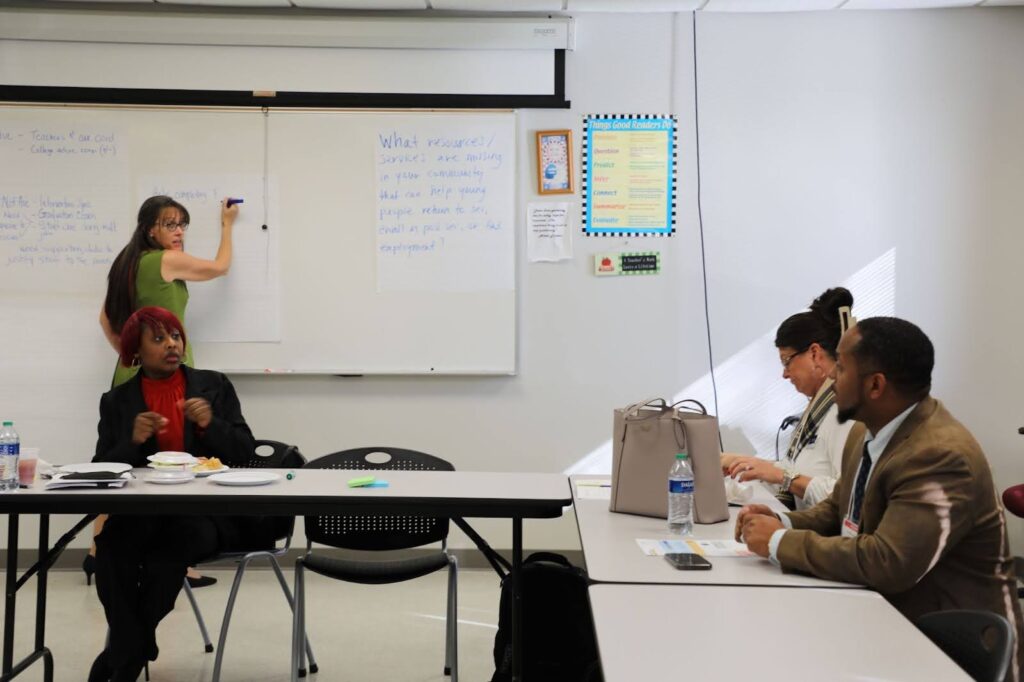
As each of the four counties broke off into their respective classrooms, the conversations were lively and full of excitement. In the Pender County group, they addressed the relationship between guidance counselors and students, as well as the topic of completing the Free Application for Federal Student Aid (FAFSA). Submitting the FAFSA is required to receive federal financial aid for postsecondary education, yet many students in Pender County do not complete the application.
“That is where those partnerships of people that they trust come into place,” said CTE Director for Pender County Schools Dominique Bates, referencing back to the young adult panel discussion on mentorship. Bates and his Pender County peers suggested that FAFSA workshops need to take place in trustworthy environments outside of school so that youth, and their families, feel comfortable sharing personal information— and ultimately complete the required form.
New Hanover County discussed the need to focus efforts on “inreach”— a strategy for recruiting opportunity youth who may be living in institutional facilities such as group homes, juvenile detention or residential treatment.
“It’s our job to go out there and make sure that either we are pushing them back into the direction of school or finding them alternative options,” said Jamir Jamoke, case manager for the Pathway Home Program at LINC Inc.
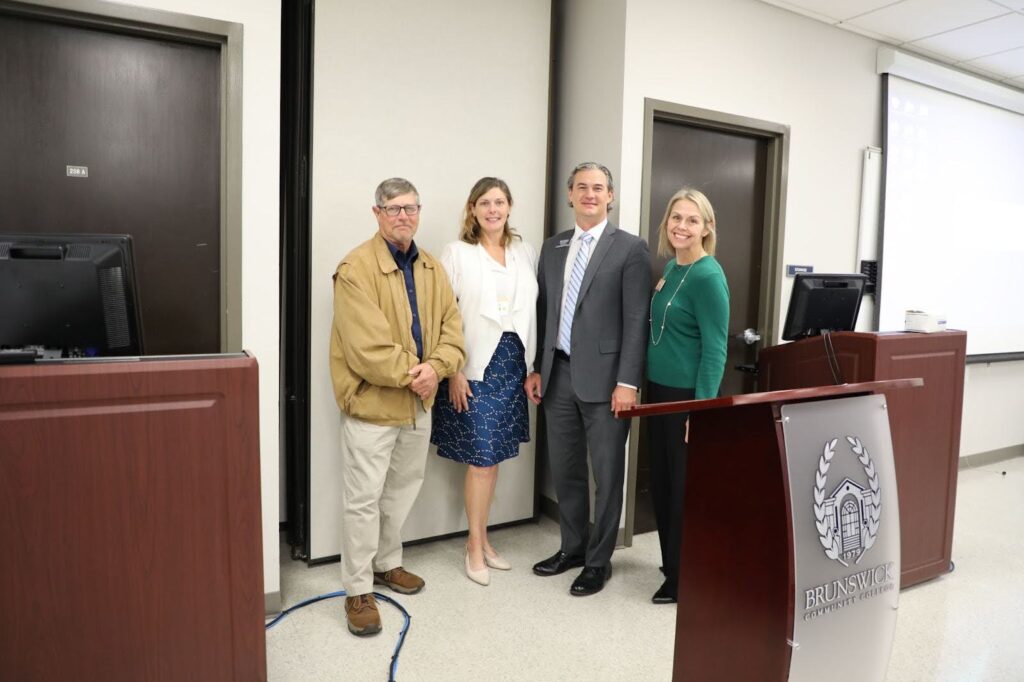
As each of the four counties reconvened, it was clear that progress for the Cape Fear region’s opportunity youth required a cross-sector approach. Attendees at the meeting spanned local government, higher education, secondary education, local businesses, non-profits, workforce development and the youth themselves.
“By bringing all these people together you converge things that are overlapping in workforce development, economic development, public policy, economics, and so much more,” explained Mark Lanier, Talent First Economics Community Cohort regional team member and recently retired assistant to the chancellor and Board of Trustees at UNCW.
The Four-County Regional Conversation on Opportunity Youth sparked the kind of conversations and action planning that is needed in order for the region to grow and support the next generation of its workforce. Leaders had the chance to identify their most pressing challenges, and to then hear from their peers and young people on how best to tackle them. Attendees left Brunswick Community College energized by these newfound ideas and approaches, eager to propel the Cape Fear region’s young adults into the high-quality jobs of the future.
